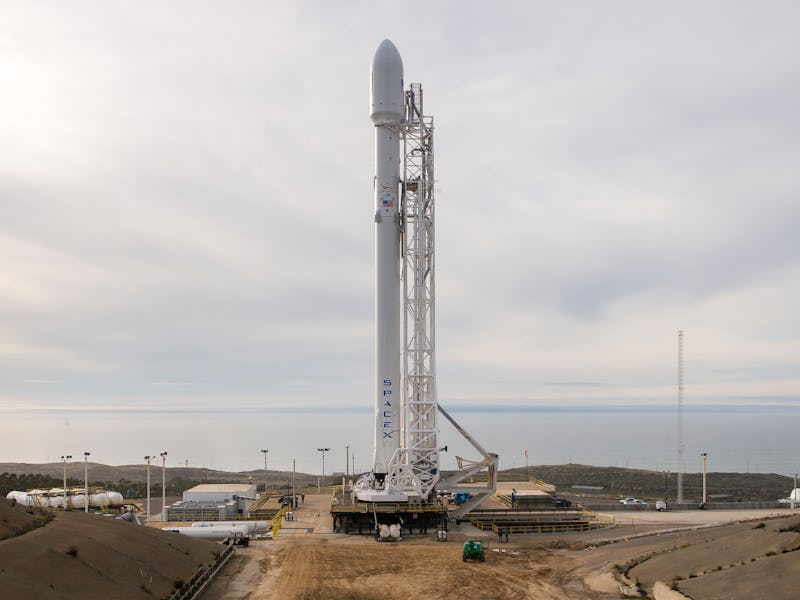SpaceX’s January Launch Date Forces Customer to Abandon Ship

British satellite maker Inmarsat just announced it will partner with Arianespace to launch a new communications satellites on an Ariane 5 rocket next year. The satellite — which will boost communications for the European Aviation Network (EAN) — was originally slated to liftoff atop a SpaceX Falcon 9 rocket. Due to delays stemming from a September 1 launchpad explosion, Inmarsat decided to shop around and was able to secure a mid-2017 launch date.
“We are delighted with [the] flexibility that Arianespace has shown in being able to provide a launch slot that enables us to place our European Aviation Network S-band satellite in orbit by mid-2017,” Michele Franci, CTO of Inmarsat, said in a statement.
The setback for SpaceX comes a day after the company announced it is targeting a launch date in early January for its next mission — pending FAA approval of course. The highly anticipated mission, which will ferry ten Iridium satellites into orbit, will be the company’s first in over four months.
September’s explosion, which destroyed a Falcon 9 booster and consumed an expensive Facebook-backed satellite, forced the company to indefinitely halt any launches until an investigation could be completed.
“We’re continuing to make progress with the investigation into our Sept. 1 anomaly and we are working to safely and reliably return to flight in early January,” a SpaceX spokesperson told Inverse via email. “Inmarsat is a long-time partner, and we wish them well with their upcoming mission.”
However, this is not the end of SpaceX’s partnership with Inmarsat. The company has said “it is looking forward to continuing to work with SpaceX going forward,” which includes the launch of an Inmarsat-5 F4 Global Xpress (GX) satellite in the first half of 2017.
SpaceX founder and CEO Elon Musk had previously said the company was hoping to return to flight in mid-December, and last week, Iridium — a satellite communications company — tweeted that the upcoming mission might take place as soon as December 16.
But SpaceX and the FAA need more time as the company still has to deliver its full investigation into the explosion — which has grounded its Falcon 9 rocket for more than three months — to the FAA. Once the FAA has reviewed the results, they will need to issue SpaceX a license to launch.
In preparation for the impending launch, the satellite payload and launch vehicle are on site at California’s Vandenberg Air Force Base. All that’s waiting is a launch date.
“We are finalizing the investigation into our September 1 anomaly and are working to complete the final steps necessary to safely and reliably return to flight, now in early January with the launch of Iridium-1,” SpaceX said in a statement Wednesday. “This allows for additional time to close-out vehicle preparations and complete extended testing to help ensure the highest possible level of mission assurance prior to launch.”
SpaceX is currently contracted to launch a total of 70 satellites (10 at a time) on seven Falcon 9 rockets. These new satellites will replace the aging ones currently in orbit. Dubbed the Iridium Next satellite fleet, they will provide a variety of customers — including military, oil and gas companies, and private citizens — access to global voice and data coverage.
In an interview with CNBC last month, SpaceX founder and chief executive Elon Musk revealed that the investigation narrowed the cause of the September 1 mishap to an anomaly during the fueling process.
SpaceX engineers are confident they can fix the problem with by revamping the way they fuel the rocket. This would avoid any major hardware redesign, which would keep the Falcon grounded for many more months.
Iridium expressed confidence in SpaceX’s ability to launch their satellites, and seem unbothered by the January target.
“Iridium supports SpaceX’s announcement today to extend the first Iridium Next launch date into early January, in order to help ensure a successful mission,” the company said. We remain as confident as ever in their ability to safely deliver our satellites into low Earth orbit.”
The FAA has the final call — a verdict that should come soon after SpaceX delivers its full report.